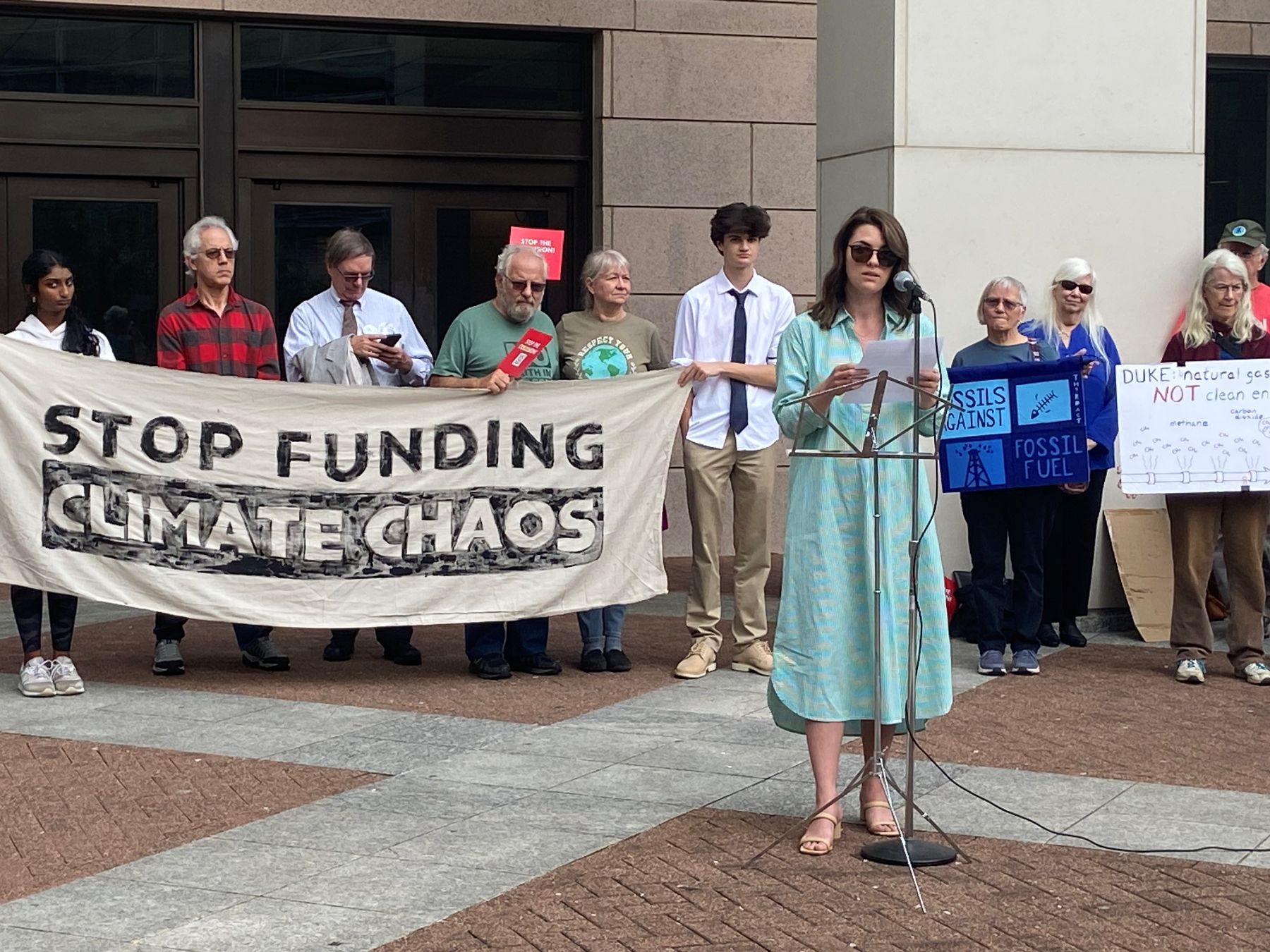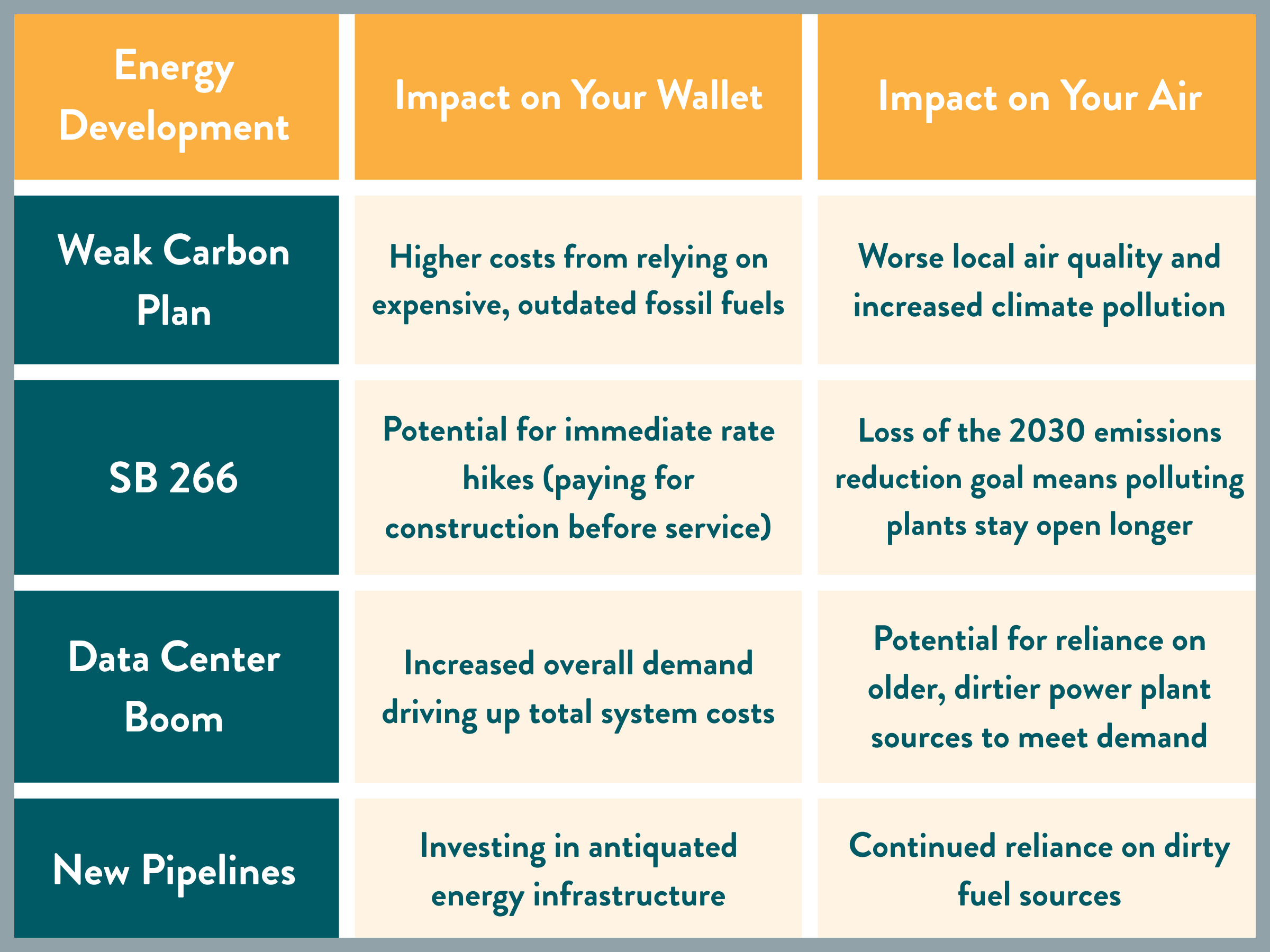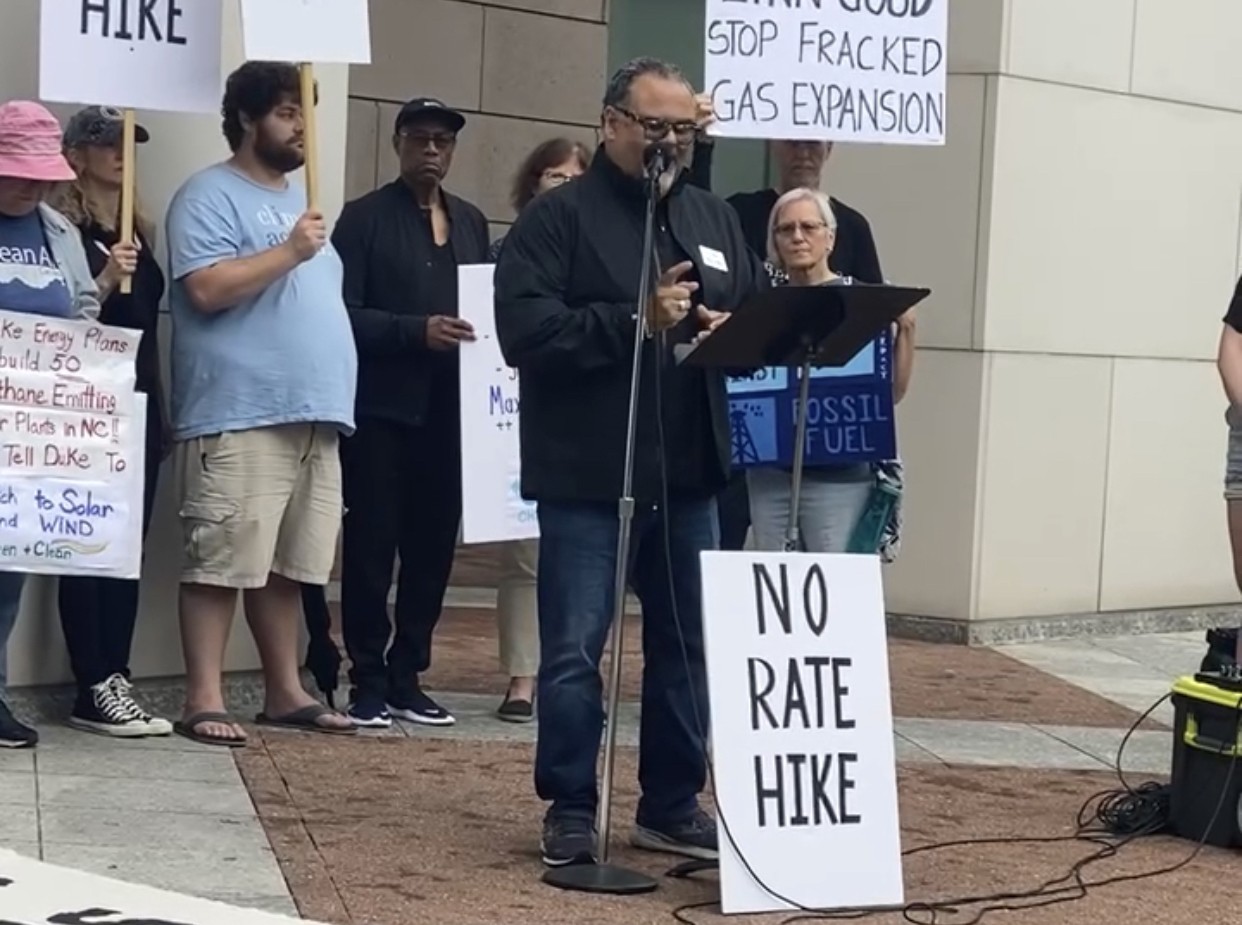If you feel like the ground beneath North Carolina’s energy system is shifting, you’re not imagining things.
Right now, a convergence of regulatory changes, legislative rollbacks, and massive industrial demand is creating a pivotal moment that will determine what kind of energy we use, how much we pay for it, and what it means for our communities and our air.
The decisions being made today will impact your household budget and our environment for decades. Here’s a breakdown of some of the things currently reshaping North Carolina’s energy future.
Duke Energy officially submitted its proposed Carbon Plan to the NC Utilities Commission (NCUC) on October 1st. This document is essentially the utility’s blueprint for the next several decades, outlining how it plans to move away from fossil fuels.
The problem is that the plan submitted by Duke fell short of the bold clean energy path North Carolinians need. The proposed plan includes new natural gas infrastructures, while limiting investments in cost-effective renewable technologies (omitting wind energy entirely). And while the plan includes some marginal increases to solar energy and battery storage, these are still woefully inadequate to get us to our emission reduction goals.
The NCUC will now spend the next year reviewing the plan and considering public input, eventually scheduling formal opportunities for people to weigh in (we will update here as those dates are set). Will the Commission be receptive to public feedback that pushes for a more aggressive, consumer-friendly plan?
That matters. The Carbon Plan determines long-term fuel reliance (fossil fuels vs. renewables), which in turn dictates air quality in communities near power plants and shapes long-term energy costs for everyone. If the NCUC approves a weak plan, we lock ourselves into years of unnecessary pollution and risk building costly, polluting infrastructure that will soon be obsolete.
While the NCUC reviews the Carbon Plan, recent legislation is further undermining climate progress. Earlier this year, lawmakers in the General Assembly passed SB 266, a bill that fundamentally dismantles our state’s clean energy framework.

SB 266 was a legislative vote for higher costs and slower decarbonization. It sent a signal that the state is willing to sacrifice environmental progress and ratepayer protection for utility interests.
Adding to the complexity are massive external pressures demanding huge amounts of energy, further driving up costs and fossil fuel dependence.

North Carolina is becoming a hotspot for the energy-hungry data centers that drive the AI industry, with a major new facility planned for Richmond County. These facilities place enormous, sudden demand on the electricity grid. If not managed with clean energy solutions, this demand will be met by firing up existing fossil fuel plants or building new ones—lengthening our reliance on dirty power and increasing the total energy bill for the state.
Meanwhile, the push for new gas pipeline infrastructure also runs counter to climate goals. Building new pipelines commits us to decades more of fossil gas use, delaying the transition to clean, affordable, renewable energy.
Most people don’t realize how these regulatory and legislative decisions directly affect them. But these developments could create damage that will ripple across North Carolina for decades:

North Carolina’s future stands at a pivotal fork in the road. The choices being made now will determine if we become a national leader in the clean energy economy, or if we remain tied to expensive, polluting fuels.
The decisions around your health and your utility bills are being made now.
If we do not pay attention, these regulatory and legislative choices will be made for us, without the input of everyday North Carolinians. That’s why we need to amplify the public’s voice to hold decision-makers—especially Duke Energy—accountable. Over the next few months CleanAIRE NC will be breaking down the technical details and working to connect the dots so you can understand what’s at stake.
The system is moving fast. Your voice is the one thing that can slow down bad policy and demand a cleaner, more affordable future.
